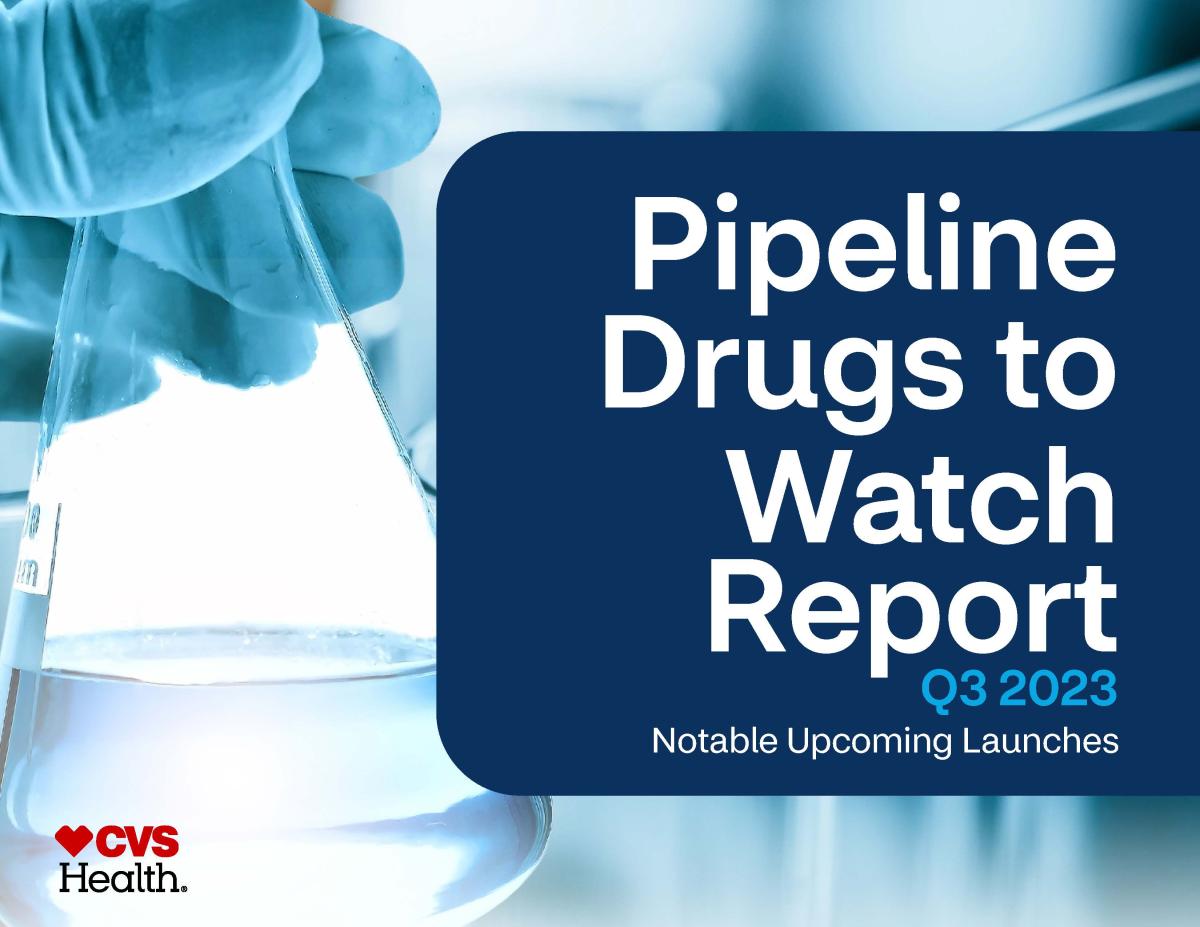Protecting infants and young children from RSV
Approval of new pediatric RSV preventive therapies expected ahead of the 2023-2024 RSV season
Michelle Gourdine, MD, Senior Vice President and Chief Medical Officer


In recent years, a rise in respiratory syncytial virus (RSV) cases has been cause for concern for infants and children. An estimated 58,000-80,000 children under the age of five are hospitalized each year with RSV.1
58,000-80,000 pediatric hospitalizations from RSV annually
Since the 1960s, pharmaceutical companies have worked to develop a vaccine to target RSV as well as infections caused by the virus.2 While there is no vaccine approved for use in young children in the United States, promising research and developments in the pipeline are underway.
The impact of RSV on infants and young children
According to the Centers for Disease Control and Prevention, most if not all children contract RSV before they reach the age of two. RSV is typically associated with mild, cold-like symptoms, but if left untreated, the virus can lead to more serious conditions such as bronchiolitis and pneumonia.
Among infants and young children, those at greater risk for contracting RSV include premature infants, children with chronic lung disease or congenital heart disease, and those with weakened immune systems.
While severe cases are rare, one to two of every 100 infants under 6 months of age who contract RSV need to be hospitalized.3
Currently, certain premature infants and children with heart or lung disorders can receive Sobi’s Synagis (palivizumab) to prevent lung disease caused by RSV.4
Global developments in pediatric RSV preventive agents
While no approved pediatric RSV vaccines are currently on the U.S. market, several manufacturers are focused on developing therapies for RSV prevention.
1-2 out of every 100 infants require hospitalization for RSV annually
Beyfortus (nirsevimab, AstraZeneca/Sanofi), a single-dose monoclonal antibody, was approved for use in the European Union and United Kingdom in November 2022.5 More recently, Canada adopted the agent for use in April 2023.6
The MELODY and MEDLEY trials captured the effect of Beyfortus in different subsets of infants. The MELODY Phase III trial focused on healthy late-term and full-term infants, finding that a single-dose of Beyfortus administered prior to RSV season protected them from the virus.7 The MEDLEY Phase II/III trials specifically looked at infants with congenital heart disease, chronic lung disease and prematurity, and found that the safety profile of Beyfortus was similar to Synagis.8
To prevent RSV, Beyfortus would be given to newborns and infants entering or during their first RSV season, as well as children up to two years of age at high risk for severe RSV through their second RSV season.9 Side effects such as fever, rash, and injection site reactions were reported in infants and children.
Abrysvo (respiratory syncytial virus vaccine, Pfizer) is a therapy that targets RSV prevention before birth, with the agent administered to pregnant individuals during the late second to third trimester of their pregnancy.10
Data published in the New England Journal of Medicine showed the safety and immune response of Abrysvo against severe RSV-associated lower respiratory tract illness. A post hoc analysis of preliminary vaccine efficacy conducted on 508 infants found 91.5 percent efficacy against severe RSV-associated lower respiratory tract illness and 84.7 percent efficacy against medically attended RSV-associated lower respiratory tract illness.11 In November 2022, results from the Phase 3 clinical trial MATISSE (Maternal Immunization Study for Safety and Efficacy) showed vaccine efficacy of 81.8 percent for the same severe illness.12
The U.S. Food and Drug Administration (FDA) has accepted applications for Beyfortus and Abrysvo. Decisions on Beyfortus and Abrysvo are expected in the third quarter of 2023.13
Approval of the first RSV vaccine for older adults
The FDA recently approved Arexvy (respiratory syncytial virus vaccine, recombinant, adjuvanted), a single-dose vaccine by GlaxoSmithKline (GSK) that prevents lower respiratory tract disease (LRTD) caused by RSV in adults ages 60 and older.14 Each year, RSV leads to 60,000-120,000 hospitalizations among older adults.
RSV leads to 60,000-120,000 hospitalizations among older adults
The FDA examined the clinical effectiveness of Arexvy in a randomized, placebo-controlled study of 24,966 participants over the age of 60. Results showed a reduced risk of LRTD by 82.6 percent among the 12,500 individuals who received the dose. The risk of severe RSV-associated LRTD was reduced by 94.1 percent.15
While GSK’s vaccine is the first to receive approval, other pharmaceutical companies such as Pfizer and Moderna are working to move their vaccines targeted at older adults through development and approval in 2023 and 2024.
How plan sponsors can stay informed on the drug pipeline
It’s important for plan sponsors to understand which pediatric RSV preventive agents are in development. CVS Caremark offers proactive drug pipeline surveillance as a service to plan sponsors, allowing you to better serve members at high risk for RSV.
In the coming months, we will continue to monitor and share updates on future developments and rollout.
Discover additional insights
This document contains references to brand-name prescription drugs that are trademarks or registered trademarks of pharmaceutical manufacturers not affiliated with CVS Health.
© 2023 CVS Health. All rights reserved. 2185693 061323


